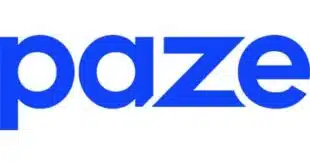The provisions of the Durbin Amendment to the 2010 Dodd-Frank Act are starting to hurt smaller issuers’ debit card income even though these financial institutions are explicitly exempted from the law’s cap on interchange rates, according to a debit expert.
“This phenomenon is happening as we speak,” said Tony Hayes, a partner at Oliver Wyman, a New York City-based consultancy. Hayes, who delivered his findings this week at a payments conference in San Diego, presented data showing that average debit interchange revenue per transaction for large issuers plummeted 25 cents, to 24 cents, on signature debit and 11 cents, to 23 cents, on PIN debit in the immediate aftermath of the cap’s October 2011 effective date. Durbin’s interchange ceiling applies only to debit issuers with more than $10 billion in assets.
The immediate effect on smaller issuers was much more modest. These institutions saw average revenue per signature transaction drop 3 cents, to 51 cents, while PIN transaction revenue dipped a penny, to 31 cents.
But Hayes warned that these so-called exempt issuers have already begun to see per-transaction revenue erode at a faster clip. By the time the Federal Reserve, which set the Durbin ceiling and proposes to conduct regular surveys of industry pricing, releases its next interchange study, “we’ll see material declines” in smaller issuers’ per-transaction income, Hayes told the audience. “We’re seeing it as we speak.
Hayes blames another Durbin provision for what would appear to be a perverse result for small issuers. This provision, which took effect a year ago, requires all debit card issuers—not just big ones—to make their cards work on at least two unaffiliated networks. The requirement was intended to increase merchant choice in transaction routing and help drive down merchants’ acceptance costs.
But Hayes said the rule is pushing networks to continually reduce their rates in a self-reinforcing cycle to compete for merchant favor. “It’s a very unstable dynamic,” he told the audience of executives attending the 2013 Payments conference sponsored by NACHA, the regulatory body for the automated clearing house network. “What we see is a proverbial race to the bottom.” Networks set interchange, which is collected by issuers from acquirers and passed on to merchants.
Since rates for regulated banks have already been slashed, the competitive rate reductions are affecting networks’ interchange tables for exempt issuers, says Hayes. “There’s no cap for exempt issuers, but there’s also no floor,” he warned. “Competition now is by price.”
In a curious way, the routing rule has made allies of issuers and merchants, parties that have squabbled for years over transaction pricing, while distancing issuers from debit networks, Hayes argued. Both issuers and merchants now prefer PIN debit over signature debit because of its lower cost, for example. “The interests of issuers and merchants are aligned for the first time in decades,” Hayes said. “But the interests of issuers and networks may be diverging.”
To be sure, regulated issuers now promote PIN debit over signature debit, a reversal of their position before Durbin took effect. The law’s pricing caps don’t differentiate between the two authentication methods, but PIN debit’s lower fraud and network costs give it an average margin for regulated issuers of 10.2 cents per transaction, compared with 4 cents for signature debit, according to Hayes.
Even so, he added, “we still have a product that’s expensive and a revenue stream that’s decimated.”
The result is that banks are less inclined to invest resources in debit, according to Hayes. “It’s a night-and-day shift in terms of banks’ interest and investment in the product,” he said. But debit still delivers value to issuers, despite the pricing caps, he said, pointing out that debit cards play a potent role in retaining customers. The retention rate for banks issuing debit cards is 3% higher than for banks that don’t issue the cards, he said.





